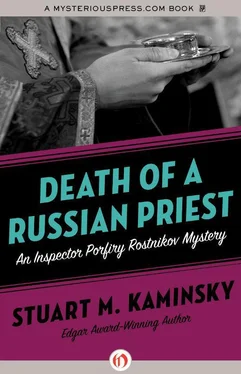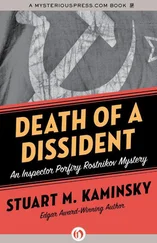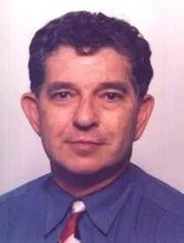Stuart Kaminsky - Death Of A Russian Priest
Здесь есть возможность читать онлайн «Stuart Kaminsky - Death Of A Russian Priest» весь текст электронной книги совершенно бесплатно (целиком полную версию без сокращений). В некоторых случаях можно слушать аудио, скачать через торрент в формате fb2 и присутствует краткое содержание. Год выпуска: 2012, Жанр: Полицейский детектив, на английском языке. Описание произведения, (предисловие) а так же отзывы посетителей доступны на портале библиотеки ЛибКат.
- Название:Death Of A Russian Priest
- Автор:
- Жанр:
- Год:2012
- ISBN:нет данных
- Рейтинг книги:3 / 5. Голосов: 1
-
Избранное:Добавить в избранное
- Отзывы:
-
Ваша оценка:
- 60
- 1
- 2
- 3
- 4
- 5
Death Of A Russian Priest: краткое содержание, описание и аннотация
Предлагаем к чтению аннотацию, описание, краткое содержание или предисловие (зависит от того, что написал сам автор книги «Death Of A Russian Priest»). Если вы не нашли необходимую информацию о книге — напишите в комментариях, мы постараемся отыскать её.
Death Of A Russian Priest — читать онлайн бесплатно полную книгу (весь текст) целиком
Ниже представлен текст книги, разбитый по страницам. Система сохранения места последней прочитанной страницы, позволяет с удобством читать онлайн бесплатно книгу «Death Of A Russian Priest», без необходимости каждый раз заново искать на чём Вы остановились. Поставьте закладку, и сможете в любой момент перейти на страницу, на которой закончили чтение.
Интервал:
Закладка:
“I just saw two people, a man and woman, come out of here,” he said. “They were arguing.”
“Police,” Tatyana answered, considering whether she wanted a drink. Both the good and bad thing about running a bar was that you could drink whatever and whenever you wished. Leonid Dovnik did not drink anything harder than beer. Leonid Dovnik did not smoke. Leonid Dovnik did not like women. Leonid Dovnik did not like men. Leonid Dovnik did not even like to do what he did best, kill. “Do you want to know why they were here?”
Leonid looked at her blankly.
“They are looking for the girl,” she said, leaning toward him over the counter.
“We are looking for the girl,” he said.
“We will be paid well by her father if we find her first,” she said.
“It would be easier if I just killed her,” he said. He looked into his bag to be sure everything he had bought was there. A piece of meat would have been good. He could make a kind of casserole or meat pie. But he had no meat.
“Our goal is to make money,” Tatyana said, lighting another cigarette to help her think. She leaned forward, elbows on the bar, head in her cupped hands. “When you find her, don’t do anything. I told you. Just let me know.”
The door to the café opened and Yuri, the cleanup man, shambled in. He looked at Leonid and Tatyana and scurried away to the storeroom to fill the wash pail with water.
“Perhaps we can have them bid against each other, those people who want her found and those who do not,” Tatyana said. “I’ll work on it. First, we must find her.”
Leonid stood up. “Can you put my groceries in your refrigerator?”
“Yes,” she said. “Of course.”
The Syrian embassy in Moscow is located at number 4 Mansurovsky Street. It is open from 9:00 A.M. to 2:30 P.M. Monday through Friday. It is a relatively busy embassy compared with those of, say, Thailand or Australia. It is busy because the interests of the commonwealth states and Syria are often similar enough to make frequent intercourse worthwhile. The foremost of these interests is oil, an interest grown all the more vital since the disastrous loss of supplies from Iraq and the collapse of the ruble. The People’s Oil Industrial Investment Euro-Asian Corporation was promising new Siberian oil wells and improved transportation systems, but oil production had begun to fall even before the demise of the old Soviet Union and was expected to continue to fall by at least ten percent a year, perhaps till the end of the century.
As they sat in the small waiting room of the embassy, Sasha Tkach and Elena Timofeyeva were not aware of the depth of the relationship of their country and Syria, but they knew that an Arab oil minister was to be treated with sensitivity and courtesy.
There was nothing to look at in the room except a large photograph of Syria’s President Assad, staring to his right in the general direction of Poland.
The room was almost unbearably hot. Both Sasha and Elena had removed their coats and rested them on their laps. Now they awaited the return of the man with the thick dark hair and bushy mustache who had led them into this room.
“ Kahk dyeelah? How are you?” Elena asked.
Sasha was staring at the president of Syria.
“How are you?” Elena repeated.
“I am growing sullen again,” he said.
“Have I told you you are a difficult man to work with?” Elena said.
“Yes, but I am not always difficult.”
“One hundred percent of the time in my experience,” she said.
“And that experience, you must admit, is very, very limited.”
“If you-” Elena began, but stopped abruptly when Sasha put his finger to his lips and motioned over his shoulder with his thumb.
At first she sensed rather than saw or heard the man who had entered the room. Tkach had not even looked in the direction of the man behind him, but he had known he was there.
Elena’s eyes met Sasha’s with a question, her mouth opening slightly. Sasha smiled enigmatically, stood, and turned. Elena stood and turned also.
“I am Hassam Durahaman,” the man said in a deep voice that betrayed no accent.
He was tall and trim and wore an unwrinkled blue suit. His skin was dark in sharp contrast with his white hair and thin white mustache. He stepped forward and held out his hand to Tkach. Tkach responded and found the grip firm and powerful. Durahaman nodded, almost a bow, in Elena’s direction.
“Coffee?” he asked, turning his back and motioning for them to follow. The man who had ushered them in entered the room.
“Yes,” said Tkach.
The second man took Sasha and Elena’s coats and the oil minister said something in Arabic. The man bowed and disappeared behind them as they entered a large office with a desk to their right. To their left a quartet of armchairs covered in a silky, muted red material circled a round table inlaid with what seemed to be thousands of black and white stones in an elaborate design. There was a large, ornate, rectangular rug. The background of the rug was a dull cream yellow. The foreground was a variety of colors, primarily red, in a labyrinthian pattern.
Durahaman moved to the table, held his palm out to Tkach to take a seat, and pulled out another chair for Elena. As she sat he pushed the chair in for her.
“Thank you,” she said.
When they were seated, the minister adjusted his trousers adroitly to keep them from wrinkling, rested his arms on the arms of the chair, and looked at them. “You have come to report on your efforts to find my daughter,” he said. “I can see by your faces that you have not located her. Am I correct?”
Elena waited for Sasha to answer, but he said nothing. “Correct,” she said. “But we have some ideas. We know where she spent much of her time and with whom. We would like to know if you have any information on where she might have gone or the people she associated with.”
Tkach pulled the photograph of Amira and Grisha Zalinsky from his pocket and held it forward for the oil minister to see.
Durahaman barely glanced at it. “Ah, the Jew who was murdered this morning,” he said as the door through which they had come opened. “Our coffee.”
The dark-haired man set a silver tray on the mosaic table. On the tray was a brass coffeepot with an ornate handle. The coffee cups were also brass with matching handles.
“How did you know about Zalinsky?” asked Elena.
“Sugar?” Durahaman asked.
“Two, please,” said Elena.
“None,” said Tkach, though he normally took three cubes at least if he could get them.
Durahaman poured and then waited while Sasha reached over to pick up the cup. The brass handle was painfully hot. He put the cup down gently and said, “I’ve changed my mind. I would like sugar. Three lumps.”
Durahaman nodded, dropped three cubes into his cup, and handed Sasha a spoon.
Elena reached for her cup, picked it up, and barely got it back into the saucer. A few drops spilled on the table. “I’m sorry,” she said, leaning over to wipe the spots with a napkin.”
Durahaman lifted his own steaming cup to his lips with a forgiving smile in her direction and sipped slowly.
“This table has withstood two revolutions,” he said. “A man died on this table. That was in Egypt many years ago. It took me four days to clean the blood from between the small tiles.”
“A steady hand and great patience,” said Tkach.
Elena tried to pick up her coffee again. It was too hot. Sasha had already picked his up and was drinking. She was damned, she decided, if she was going to play this game. She left the cup where it was.
Durahaman said, “Observe the carpet beneath our feet. It was made by hand more than three hundred years ago. I am told it took a year. The artist worked with infinite patience more than ten hours a day. The rug is priceless, but it is of no value unless it is seen and appreciated.”
Читать дальшеИнтервал:
Закладка:
Похожие книги на «Death Of A Russian Priest»
Представляем Вашему вниманию похожие книги на «Death Of A Russian Priest» списком для выбора. Мы отобрали схожую по названию и смыслу литературу в надежде предоставить читателям больше вариантов отыскать новые, интересные, ещё непрочитанные произведения.
Обсуждение, отзывы о книге «Death Of A Russian Priest» и просто собственные мнения читателей. Оставьте ваши комментарии, напишите, что Вы думаете о произведении, его смысле или главных героях. Укажите что конкретно понравилось, а что нет, и почему Вы так считаете.












